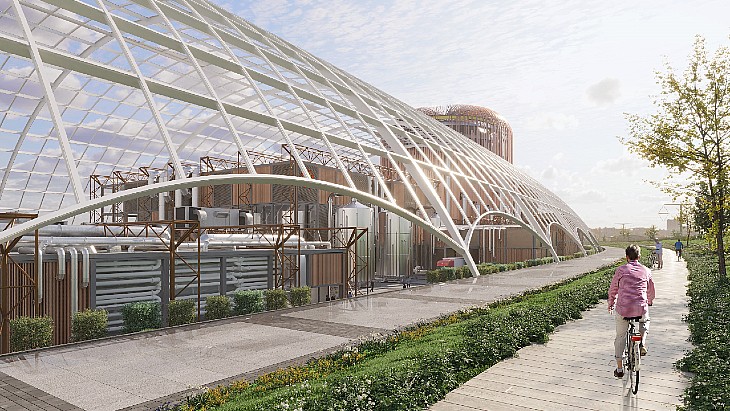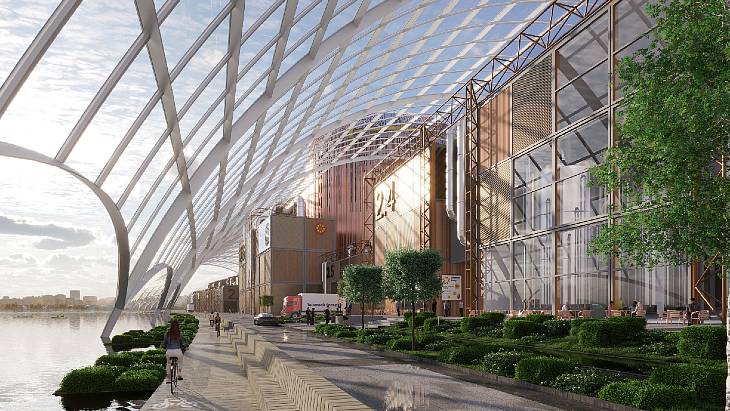Tokamak Energy announced in February it is to build a prototype spherical tokamak, the ST80-HTS, at the UK Atomic Energy Authority's Culham Campus, near Oxford, England, by 2026 "to demonstrate the full potential of high temperature superconducting magnets" and to inform the design of its fusion pilot plant, ST-E1, which is slated to demonstrate the capability to deliver electricity - producing up to 200 MW of net electrical power - in the early 2030s.
That would then be followed by the roll-out of 500 MW commercial fusion plants "in the mid-2030s", which is what the concept images are of, with the company saying "they can be built next to large populations and centres of industry where power and heat is needed".
Tokamak Energy Managing Director Warrick Matthews said: "Fusion energy from power plants like this will be zero-carbon, safe, secure, extremely efficient and run on limitless fuel from sea water."

(Image: Tokamak Energy)
The proposed fusion plants can be connected to a turbine to produce electricity but can also provide heat for industrial uses, water desalination or production of hydrogen.
There are different types of fusion being developed around the world - Tokamak Energy uses compact spherical tokamaks "which are shaped like a cored apple rather than a doughnut", with Matthews saying: "Our spherical tokamak design is more efficient than the traditional shape, with lower capital investment, operating costs and a smaller footprint. It has to be a globally deployable solution because the technologies and innovations available today are clearly not enough."
The company's current ST40 fusion device in Milton Park, near Culham, has recently been upgraded to enable experiments relating to future features that will be incorporated in both the ST80-HTS and ST-E1. Last year it achieved a 100 million degrees Celsius fusion plasma - the highest temperature recorded in a compact spherical tokamak.















